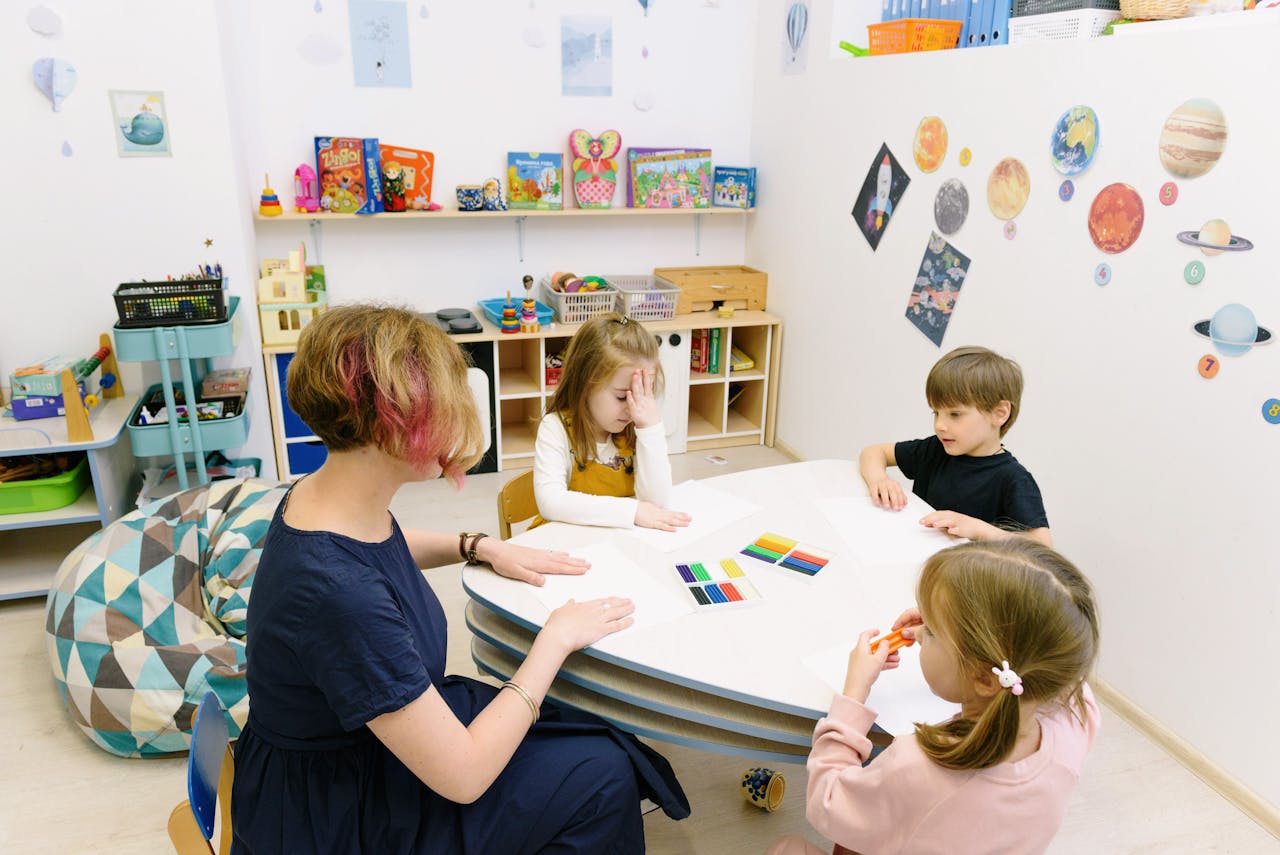Settling in to Preschool

In the past week or two a lot of the support we have been offering parents has been in respect of settling periods, particularly of settling in to preschool children
Starting preschool can be such an exciting time for your child and often in the lead up to The First Day they can be eager to take part in preparations. This can be in stark contrast with your own emotions as a parent which can be nervous or bittersweet in seeing your baby take their next big step. For parents who have children in a childcare setting already, the move to the Preschool Room may seem as normal as the progression from wobbler to toddler.
It can be quiet surprising then when a child, who was excited to start their preschool journey all summer or who has been in a familiar setting for years, is overnight reluctant to go to school and no longer wants to be separated from Mom or Dad. Here are some of the top ways we encourage parents to manage difficult settling-in periods:
- Communication. Having open and honest conversations with your child’s preschool teacher is key to building a strong foundation of trust and comfort for you all as a family. Your child will be led by your example and trust the person that you place trust in. If you are feeling sad, anxious, or nervous about your child attending preschool make sure to communicate that to the teacher. Try not to be embarrassed or suppress/mask your own feelings for the sake of your child. Children are intuitive and our real feelings as parents will impact them no matter how hard we try to put on a brave face! By being open and honest about your feelings you are supporting your child to express their feelings and preparing the teacher for the possibility that your child may feel unsure in the setting. This allows the teacher to support you as a family in settling in.
- Don’t apologise! No Preschool teacher should be shocked or unprepared for a child who screams, cries or refuses to come into school. An experienced teacher will have seen this year on year and they are by no means offended by your child’s actions. The focus for the teacher should be on calming and reassuring the child, encouraging them gently into the setting at their own pace, and supporting them to feel happy and comfortable with the prospect of leaving for a period of time.
- Don’t compare. It can be challenging if you feel as though your child is the ONLY child who is not settling into their preschool class but tries not to be discouraged. All children will approach change differently and while some may quietly accept it and others may seem overjoyed to go to preschool it does not mean that they are not experiencing their own challenges with the change. All children will have different settling experiences and each experience has value for the child and the parent. Try and remain focused on your child and discuss different options with your child’s teacher about how settling might work best for them (e.g. can you stay for the first 30 mins? Can you collect early? Can you try a reduced week? Are there any particular activities or toys which might help to encourage them into the setting)
- Transition time. Transition time is the time between activities or events that allow children to emotionally, mentally, and physically prepare to move into the next activity or phase of the day. Some well-known transition times would be bedtime or tidy-up time. Transitions are definitely forming part of your child’s day in preschool, however, if this is their first experience of a structured childcare setting it may be very new to them. By mirroring transitions at home you can make the preschool environment more familiar to them and support them with settling into the routine of the day. The key to transitions is clear communication about ‘what will happen next…’. Often when children struggle to settling in to preschool, parents will avoid the topic at home and ‘be sure not to mention the big P word’ in front of the child. This can be counter-productive as the child can then be shocked and overwhelmed to find themselves outside of their preschool with no warning or time to adjust to the idea of going. We recommend that the idea of going to preschool is introduced as early as possible in the day, depending on when they attend. If your child goes to a morning class only, preparing them for that the night before by making their snack together, picking out their clothes, and talking about what will happen in preschool the next day, can be helpful to prepare them for the morning ahead. Allowing your child to express their feelings of fear, anger, stress, or upset at home and supporting them through that can minimize the reaction at drop-off time.
If you are struggling with settling in and searching for more specific solutions please contact Penguin today for an individualized settling plan!
